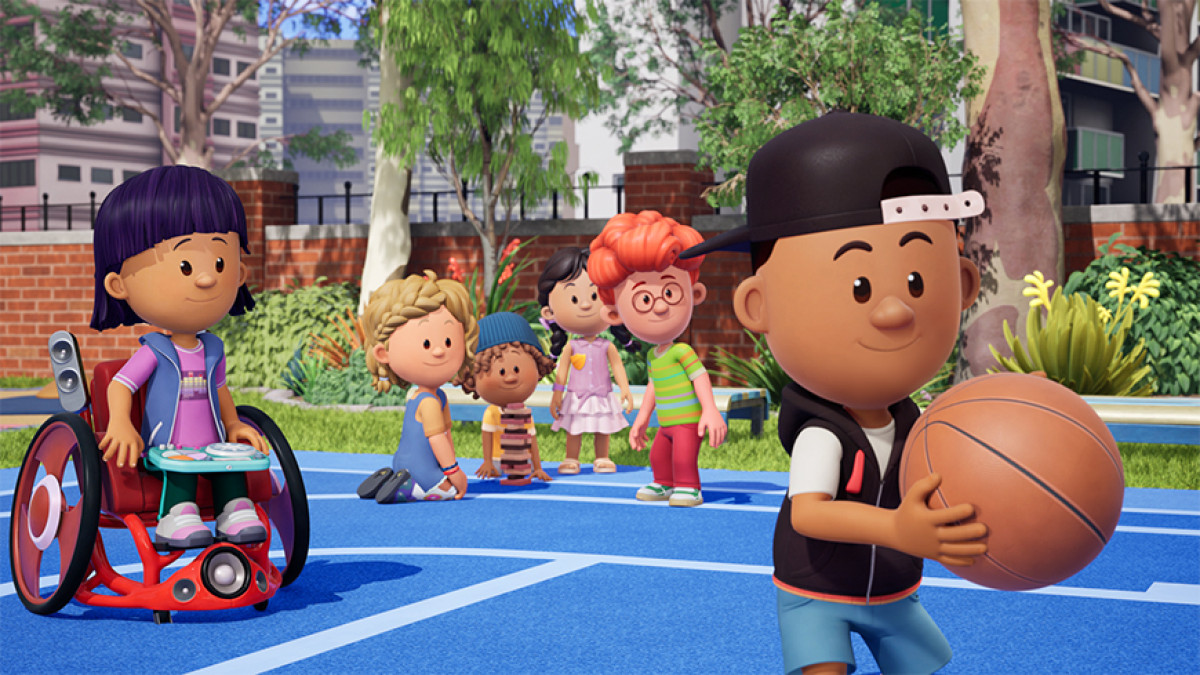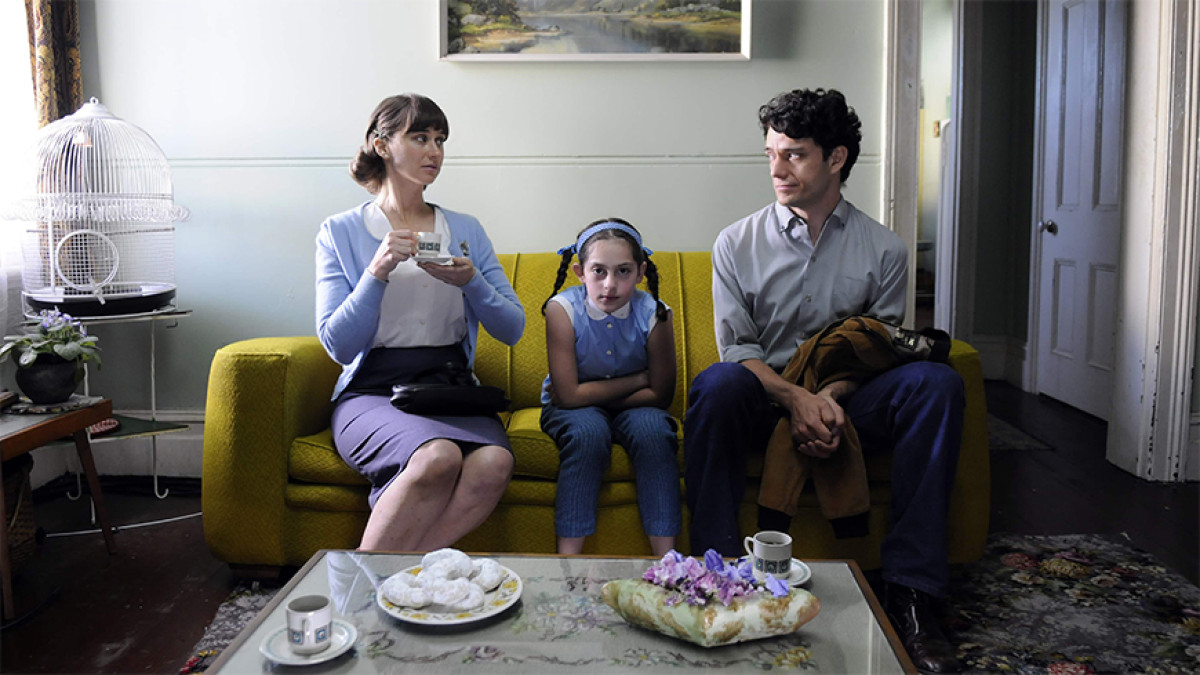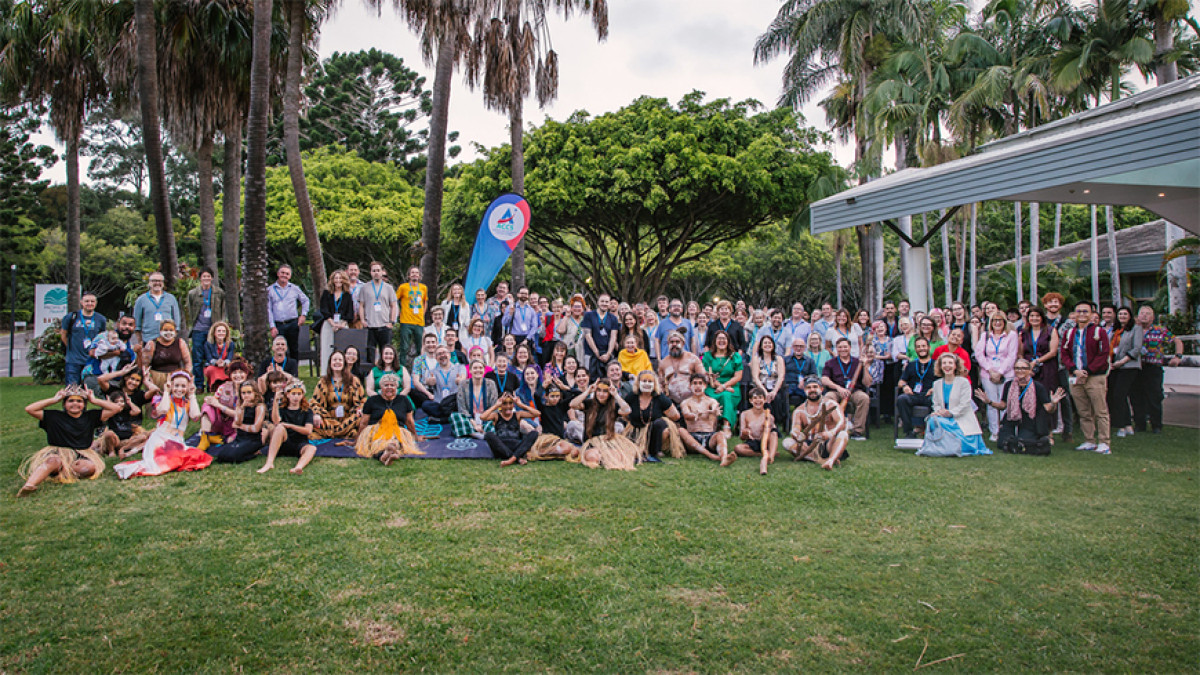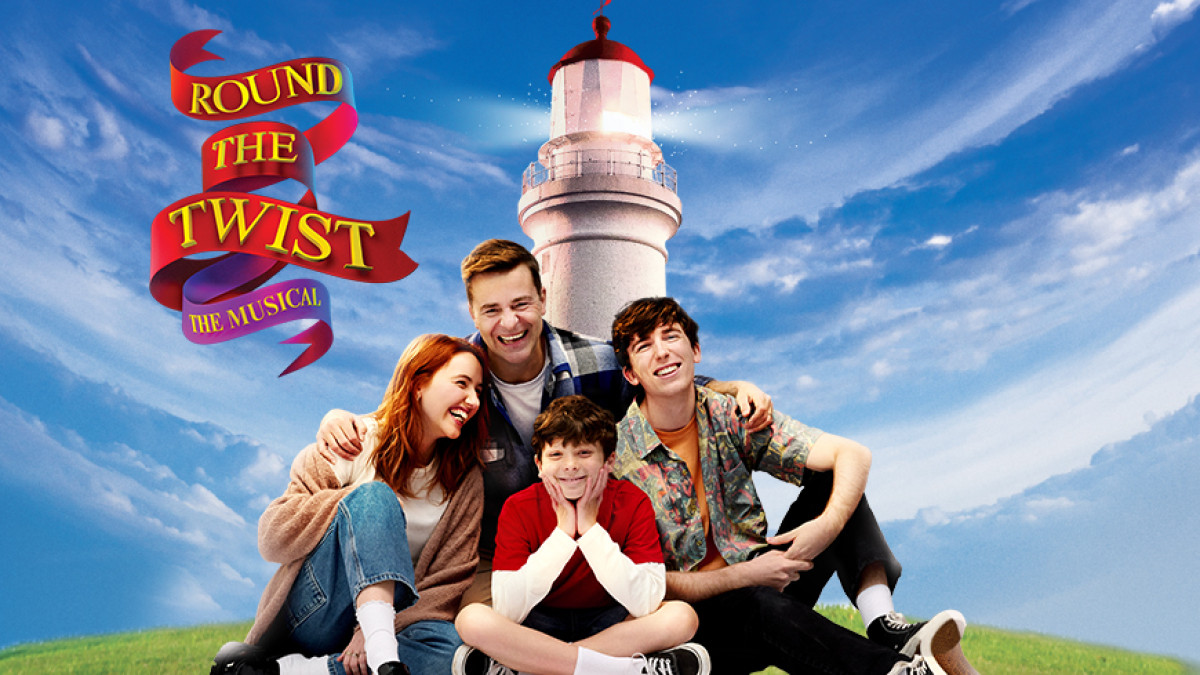ACTF News

Craig Silvey is one of Australia’s most acclaimed writers. He wrote his first novel when he was just 19. His 2009 novel Jasper Jones has sold almost a million copies worldwide and been adapted for the stage and screen. Honeybee won an Indie Book Award and Runt won the 2023 CBCA Children’s Book of the Year Award. But it’s a moment in a regional West Australian cinema, surrounded by school students, that he names as the most rewarding experience of his career.
We spoke to Craig ahead of the cinematic release of RUNT, a new family feature film based on his novel now screening in Australian theatres.
Tell us about your new movie, RUNT.
RUNT tells the story of 11-year-old Annie Shearer, who lives in the town of Upson Downs with her best and only friend, a stray dog who she rescued called Runt. Annie is quite solitary by nature, and she's a bit of a fixer. In fact, she wears an old leather tool belt with her everywhere she goes. She has a remarkably tight knit bond with Runt. The two of them are a pretty formidable team. Runt is very agile and athletic and nimble on account of his many years living on the mean streets of Upson Downs, and it makes them the perfect team for herding up the Shearers’ sheep, which are routinely breaking out in search of greener pastures.
When Annie's home is under threat, it becomes a big problem that she needs to fix, and she aspires to compete and win at the very prestigious Krumpets Dog Show in London. But there is a big problem, and one that's too large for her tool belt to accommodate: Runt will not move. He won't obey Annie if anyone else is watching. It has to be just the two of them.
Fortunately, she has a very supportive and loving family, the Shearers, who band together and make sacrifices to help Annie get to London and to save their family farm.
As well as writing the novel and the screenplay, what was your level of involvement with production? Were you on set and involved in that part of the process?
I've been involved through every layer of production, essentially. The idea emerged with me, and I began by assembling a director, John Sheedy, who came on board and who I knew would be the perfect vehicle for this story to be brought to life on screen. And then we implicated the wonderful Jamie Hilton, who is our producer. And from there, the ball really got rolling.
I was part of the consultative process for anything from heads of department to location to costume to casting all the way through to production itself. And I was here virtually every day, providing a resource wherever I could and through to postproduction, as well. So it's been a long labour of love, but I'm really proud of our film and proud of everyone who brought it to life.
I read that you wrote the novel and the screenplay concurrently. Is that right? And is that common or is that an unusual way to work?
It's a backwards way to work! I always conceived of this as a screen project. I always knew that it would lend itself well to the screen format. So in order to accelerate the production of the film, I wrote the screenplay and the manuscript hand in hand.
For me, it begins with a very detailed treatment whereby I structure something in a film format, but it reads like prose, and so that became a master document from which I could adapt both the screenplay and the manuscript. One complemented the other. So the rigidities and the structure of film helped keep the novel really focused. But building the novel and expanding the world and being digressionary and tangential helped give texture and colour to the characters and the story itself. So it was an unusual way to work, but I really enjoyed it.
Given you were writing the screenplay alongside the novel, were you imagining certain actors playing those parts? And did that inform your writing?
You tend to try not to get too ahead of yourself, but you do tend to dream big sometimes and try to accord cast to which actors might embody them the best. But we were blessed with our film in that virtually everybody who was the top of our list made it to the screen. It was quite extraordinary, actually. I mean, we have the likes of Jack Thompson and Deb Mailman, Jai Courtney, Celeste Barber, Matt Day as you've never seen him before, Tom Budge, Joel Jackson, and of course the LaTorres, Lily and Jack, who are just extraordinary in their own right. They're so talented and so generous and so lovely. Our younger cohort were always going to be a surprise to us, but some of those iconic Australian names like Jack and Deb were at the top of our list, and we were really lucky that they came on board.
It must be surreal to see these iconic actors reading lines that you wrote for them.
Extraordinary. It's hard to describe, actually. A voice as recognisable as Jack Thompson's, really embodying a character that you divined. It's almost dreamlike. It's an extraordinary honour. It's really lovely.
Speaking of iconic voices that have helped bring our film to life, we're played out by an original song by Paul Kelly, who watched our film, loved it, went straight to his guitar, and wrote a gorgeous original song called Side by Side, which he then recorded with his band. And it's part of the tapestry of our film, and it's just the perfect outro to our world. It's really gorgeous.
Really?! I had no idea. I don't even have words.
Neither do we. He sent through that early demo, which is just him and a guitar... We all just burst into tears, basically. It was just the most extraordinary thing. We're so lucky. The fact that he really believes in our film and wanted to be a part of it is just extraordinary.
Most of your other novels have been adult novels with some pretty dark themes, although some written from the perspectives of young kids. What made you want to write a children's novel?
The story tells me that. I tend to focus on character: that's the inception of a novel or a story for me. You try to stay present and open to ideas. And if you’re lucky enough, you're visited by people who have something profound to reveal to you. In this case, it just happened to be Annie Shearer and her best friend, and it ignited a sense of possibility in me. I wanted to know more about Annie. She was alluring, and I was drawn to her.
Part of my job is just about providing the time and the space and the trust for her to bring her story to me. And so I nibbled around the edges of it for a while. I asked her questions. I tried to work out why she was inhabiting my thoughts so often. And as she began to tell me her story and her background about living in Upson Downs, about Runt being a stray dog who she rescued, about them being such a formidable team, I knew I had something special: I knew I had a novel.
Then as a writer, you start to make determinations about how it might be structured, who might like to digest it, how it wants to be written. I knew that given that Annie was the focus and it was a fable-like story book, a fairytale world, that it was a story that maybe would be best served with the language that I adored so much as a younger reader. So it was Annie that told me that it was a book for everyone. It's readily digestible by younger people. But what I've really delighted in with the journey of the book is that it's something that's been shared, whether it's in classrooms or at home at bedtime, with parents and kids snuggling up together and sharing the journey… It's a story for everyone, a story that's been shared by young and old.
What’s been the audience’s response to the film so far?
In a word, overwhelming. It's just been remarkable. We were just down in the southwest of Western Australia for the CinefestOz Festival, and there were a number of school screenings… They were so invested in it. They loved it. Sitting in the audience with them while they're howling with laughter or there's sniffles and tears, seeing how invested the audiences have been, is the most rewarding and fulfilling moment of my career, I have to say. I'm just so excited about the film hitting the shelves now. I'm not daunted. I'm not nervous. I think we've bottled lightning, and I'm just excited about people having the opportunity to see it.
See also:
September 5th 2024
Top 5 education resources
September 5th 2024
Learn about character development with My Place
September 5th 2024
Kids' screen content in the spotlight at the Australian Children's Content Summit
The second Australian Children’s Content Summit (ACCS), held in Coffs Harbour in the last week of August, was a tremendous success, attended by 250 delegates from 10 countries.
September 4th 2024
Cast announced for Round The Twist The Musical
Following months of auditions and casting calls, Queensland Performing Arts Centre (QPAC) and Queensland Theatre have finalised the cast for Round The Twist The Musical, premiering to the world in Brisbane this November.



